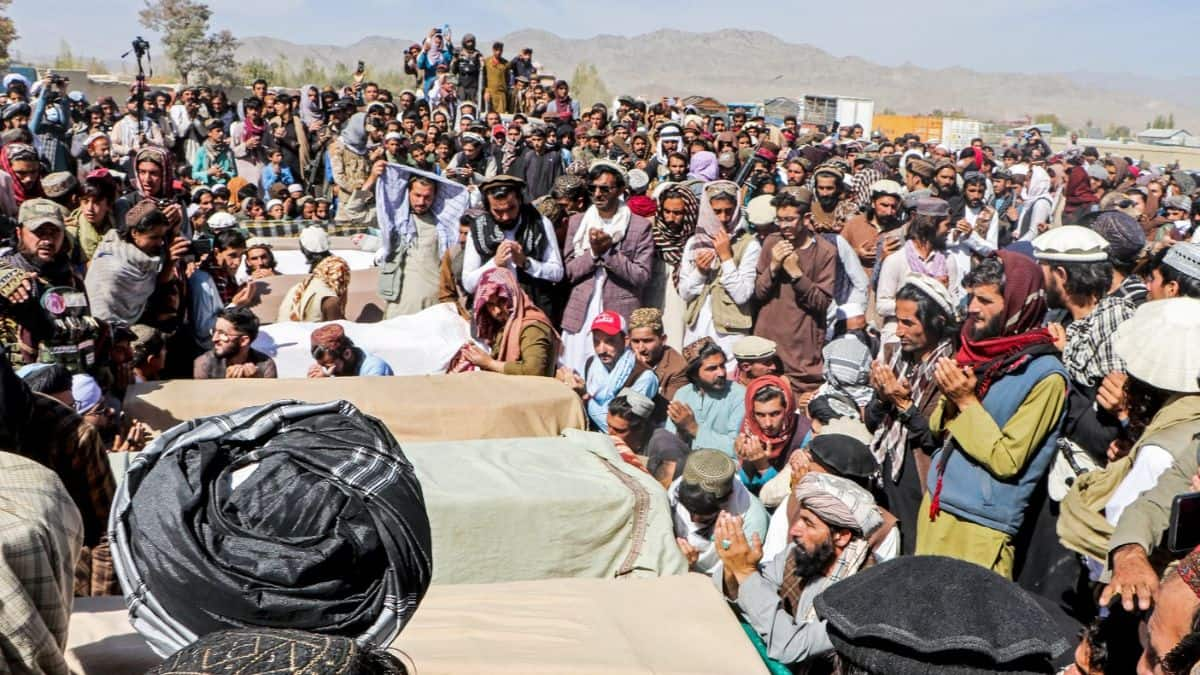World
Tensions Rise as India Strengthens Ties with Taliban, Angering Pakistan

Fighting between Pakistan and Afghanistan has escalated, prompting accusations from Islamabad that India is stoking the conflict. This month, rare and intense clashes have led to numerous casualties, with Pakistan’s Prime Minister Shehbaz Sharif claiming that New Delhi has “incited” the Afghan Taliban. Pakistan’s Defence Minister, Khawaja Muhammad Asif, described Kabul as a “proxy of India,” further fueling the already tense relations between the two nations.
Relations between Pakistan and India have been fraught since the partition of British India in 1947, marked by multiple wars and ongoing exchanges of blame regarding militancy across borders. Recently, however, Islamabad has expressed particular concern over India’s warming relationship with the Taliban, especially as Pakistan’s own ties with Afghanistan have deteriorated sharply.
A significant diplomatic event occurred on October 9, 2023, when Taliban Foreign Minister Amir Khan Muttaqi visited New Delhi. This marked the first official visit by a high-ranking Taliban official since the group regained power in 2021. As India welcomed Muttaqi, explosions rattled Kabul and a market near the Pakistan border, underscoring the volatility in the region.
Wahid Faqiri, an expert in international relations, noted that the growing closeness between India and the Taliban has compelled Pakistan to respond more aggressively. According to Faqiri, by hosting the Taliban’s foreign minister, New Delhi was strategically aiming to “aggravate the ongoing tension between Pakistan and Afghanistan.”
While the explosions on October 9 were officially unclaimed, the Taliban government accused Islamabad of an “unprecedented” incursion and retaliated with its own military offensives. This exchange of hostilities has resulted in a series of deadly artillery barrages and drone strikes, marking some of the most severe violence between the two neighbors in recent years.
An initial ceasefire collapsed shortly after the violence began, but a second ceasefire agreement was reached on October 19. Historical allies, Afghanistan and Pakistan have experienced tense relations following the withdrawal of US-led troops and the Taliban’s return to governance. Initially optimistic about the situation, Islamabad’s tone has shifted dramatically as it accused the Taliban of harboring militant groups, particularly the Pakistani Taliban (TTP), which has been linked to a surge of terror attacks in Pakistan.
In just October, over 100 security personnel and police officers lost their lives in assaults attributed to militants operating from Afghanistan, according to a Pakistani security source. This rising violence has prompted a mass deportation campaign targeting Afghan migrants and asylum seekers, whom authorities blame for increasing crime rates.
While former Pakistani diplomat Maleeha Lodhi acknowledged that the Taliban minister’s visit may have been an irritant for Pakistan, she emphasized that the core issue driving Pakistan’s frustration is the Taliban’s failure to control the TTP. In response to accusations of supporting the TTP, India’s foreign ministry refuted these claims, asserting that Pakistan often deflects blame for its internal issues onto its neighbors.
In India, the warming ties with the Taliban were initially met with skepticism due to prevailing perceptions of Islam conflicting with the Hindu nationalism championed by Prime Minister Narendra Modi. Criticism arose during the initial press conference surrounding Muttaqi’s visit, particularly regarding the absence of women journalists. Yet, public sentiment shifted when the Taliban minister expressed solidarity with India following an April 22 terrorist attack in Pahalgam, which had led to significant military confrontations between India and Pakistan.
The joint statement issued by India and the Taliban during the visit referred to the contested region as “Jammu and Kashmir, India,” implying a recognition of Indian sovereignty that further angered Islamabad. Following these discussions, India announced plans to elevate its diplomatic mission in Kabul to a fully-fledged embassy, a move that symbolizes support for the Taliban government and brings it closer to formal international recognition—a status that remains distant for most nations.
The renewed ties between New Delhi and Kabul represent a significant shift in the complex dynamics among India, Pakistan, and Afghanistan, with implications that may reverberate across the region for the foreseeable future.
-

 World3 months ago
World3 months agoSBI Announces QIP Floor Price at ₹811.05 Per Share
-

 Lifestyle3 months ago
Lifestyle3 months agoCept Unveils ₹3.1 Crore Urban Mobility Plan for Sustainable Growth
-

 Science3 months ago
Science3 months agoNew Blood Group Discovered in South Indian Woman at Rotary Centre
-

 Sports3 months ago
Sports3 months agoBroad Advocates for Bowling Change Ahead of Final Test Against India
-

 World3 months ago
World3 months agoTorrential Rains Cause Flash Flooding in New York and New Jersey
-

 Top Stories3 months ago
Top Stories3 months agoKonkani Cultural Organisation to Host Pearl Jubilee in Abu Dhabi
-

 Science3 months ago
Science3 months agoNothing Headphone 1 Review: A Bold Contender in Audio Design
-

 Top Stories3 months ago
Top Stories3 months agoAir India Crash Investigation Highlights Boeing Fuel Switch Concerns
-

 Sports3 months ago
Sports3 months agoCristian Totti Retires at 19: Pressure of Fame Takes Toll
-

 Business3 months ago
Business3 months agoIndian Stock Market Rebounds: Sensex and Nifty Rise After Four-Day Decline
-

 Politics3 months ago
Politics3 months agoAbandoned Doberman Finds New Home After Journey to Prague
-

 Top Stories3 months ago
Top Stories3 months agoPatna Bank Manager Abhishek Varun Found Dead in Well









